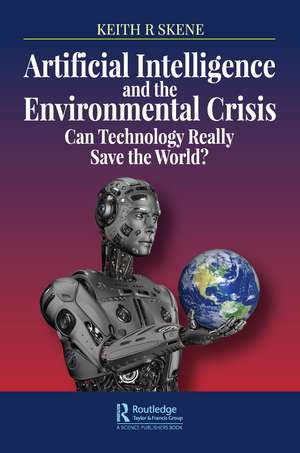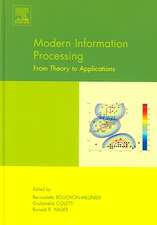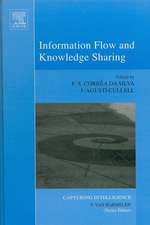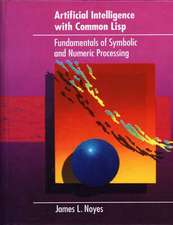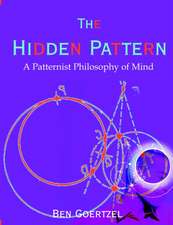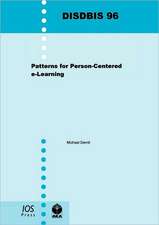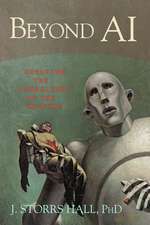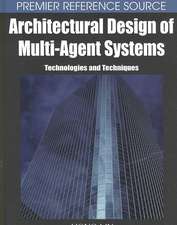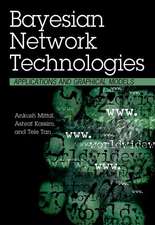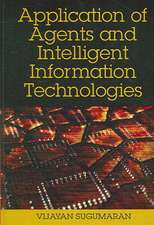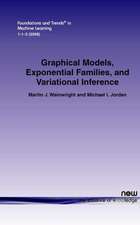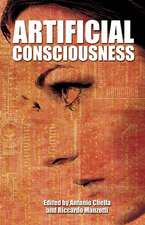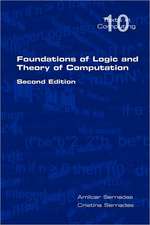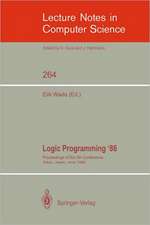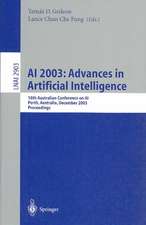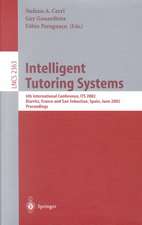Artificial Intelligence and the Environmental Crisis: Can Technology Really Save the World?
Autor Keith Ronald Skeneen Limba Engleză Paperback – 13 dec 2019
Key Features:
- Identifies a key weakness in current AI thinking, that threatens any hope of a better world.
- Highlights the importance of realizing that systems theory is an essential foundation for any technology that hopes to positively transform our world.
- Emphasizes the need for a radical new approach to AI, based on ecological systems.
- Explains why ecosystem intelligence, not human intelligence, offers the best framework for AI.
- Examines how this new approach will impact on the three arenas of society, environment and economics, ushering in a new age of re-integration.
| Toate formatele și edițiile | Preț | Express |
|---|---|---|
| Paperback (1) | 236.30 lei 43-57 zile | |
| CRC Press – 13 dec 2019 | 236.30 lei 43-57 zile | |
| Hardback (1) | 837.85 lei 43-57 zile | |
| CRC Press – 29 ian 2020 | 837.85 lei 43-57 zile |
Preț: 236.30 lei
Preț vechi: 295.38 lei
-20% Nou
Puncte Express: 354
Preț estimativ în valută:
45.22€ • 46.93$ • 37.80£
45.22€ • 46.93$ • 37.80£
Carte tipărită la comandă
Livrare economică 17-31 martie
Preluare comenzi: 021 569.72.76
Specificații
ISBN-13: 9780367436544
ISBN-10: 036743654X
Pagini: 276
Dimensiuni: 156 x 234 x 15 mm
Greutate: 0.4 kg
Ediția:1
Editura: CRC Press
Colecția Routledge
Locul publicării:Boca Raton, United States
ISBN-10: 036743654X
Pagini: 276
Dimensiuni: 156 x 234 x 15 mm
Greutate: 0.4 kg
Ediția:1
Editura: CRC Press
Colecția Routledge
Locul publicării:Boca Raton, United States
Cuprins
Preface. Artificial Intelligence and the Internet of Things. Should I Stay or Should I Go? Ethics in AI. Gender, Race, Culture and Fear. The Thinker: Human Intelligence. Other Modes of Intelligence: Thinking Outside the Human Box. Highway to Hell: The Existentialist Threat Facing Humankind. Forget the Romans. What has AI ever done for us? Imagining a New World. Barriers to Change. Transition. Glossary. References.
Notă biografică
Born in the historic city of Armagh in Ireland in 1965, Keith is a former Association of Rhodes Scholars of Australia Scholar, carrying out field research across the planet, from Kenya to the Carpathian mountains, from the Scottish Highlands to southwest Australia and from Vietnam to Trinidad. In 2010, Keith established the Biosphere Research Institute (www.biosri.org), becoming its first director. The Biosphere Research Institute does cutting-edge research on environmental, economic and societal sustainability, focusing on a fundamental dialogue around our place in the Earth system.
Recenzii
"To call this text wide-ranging would be a significant understatement, and Skene has set himself an enormous task. Across 10 discrete sections, he seeks to define and illustrate not only the nature of human, and non-human, intelligence – but also the diverse nature of ethical debate, the nature of economics and sustainability, the myriad threats that human exploitation poses to the biosphere, how these could be addressed and the dramatic structural changes to society that would be necessary.
Moving beyond humanity to the (perhaps vexed) question of intelligence as a broader concept, Skene explores the concepts of swarm intelligence and the wisdom of crowds, culminating in an exposition of how 'ecosystem intelligence' might be employed as a tool in developing sustainable global solutions to environmental management – through the agency of artificial intelligence (AI) systems. This book is a passionate manifesto, a call to arms, by someone who clearly cares deeply about his subject."
— John Gilbey, Department of Computer Science, Aberystwyth University, An Excerpt from Times Higher Education
"In this remarkably cross-disciplinary study, environmental biologist and prolific science communicator Skene (Biosphere Research Institute) challenges the notion that technological advances such as applied artificial intelligence necessarily foster inequity and environmental degradation. The book includes hundreds of compelling examples, among them the success of big data in increasing the efficiency of agriculture while decreasing environmental cost and its potential to promote ethical consumption by supporting consumer alerts with respect to the environmental and social impacts of individual purchases. The book is extensively referenced but reads as a thought-provoking popular science book rather than a strictly academic work. As such, it will engage the general public and inspire lively classroom discussions."
— D. P. Genereux, Broad Institute of Harvard University and Massachusetts Institute of Technology, Choice, Dec 2020 Vol. 58 No. 4
Moving beyond humanity to the (perhaps vexed) question of intelligence as a broader concept, Skene explores the concepts of swarm intelligence and the wisdom of crowds, culminating in an exposition of how 'ecosystem intelligence' might be employed as a tool in developing sustainable global solutions to environmental management – through the agency of artificial intelligence (AI) systems. This book is a passionate manifesto, a call to arms, by someone who clearly cares deeply about his subject."
— John Gilbey, Department of Computer Science, Aberystwyth University, An Excerpt from Times Higher Education
"In this remarkably cross-disciplinary study, environmental biologist and prolific science communicator Skene (Biosphere Research Institute) challenges the notion that technological advances such as applied artificial intelligence necessarily foster inequity and environmental degradation. The book includes hundreds of compelling examples, among them the success of big data in increasing the efficiency of agriculture while decreasing environmental cost and its potential to promote ethical consumption by supporting consumer alerts with respect to the environmental and social impacts of individual purchases. The book is extensively referenced but reads as a thought-provoking popular science book rather than a strictly academic work. As such, it will engage the general public and inspire lively classroom discussions."
— D. P. Genereux, Broad Institute of Harvard University and Massachusetts Institute of Technology, Choice, Dec 2020 Vol. 58 No. 4
Descriere
This book argues that the human model, isolated and reductionist, is not the best basis for AI. It suggests that ecological intelligence is the superior framework. Systems theory is central to the concept of sustainability, and this book argues that AI myst be grounded within the ecology of our planet in order to offer any change.
